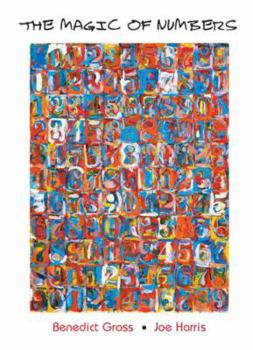The Magic of Numbers
A math book for non-math people, this text provides the reader with a mathematical view of the world. Based on the Quantitative Reasoning Course at Harvard University, it introduces the reader to the... This description may be from another edition of this product.
Format:Hardcover
Language:English
ISBN:0131777211
ISBN13:9780131777217
Release Date:January 2003
Publisher:Pearson College Div
Length:287 Pages
Weight:1.44 lbs.
Dimensions:9.3" x 0.8" x 7.5"
Customer Reviews
1 rating
Excerpt from the Harvard Magazine
Published by Thriftbooks.com User , 22 years ago
On Mathematical Imagination From whole numbers to infinity--and beyond by Robert Kaplan and Ellen Kaplan The lunatic, the lover, and the poet, said Shakespeare, are of imagination all compact. He forgot the mathematician, whose daily concerns are shapes in 27 dimensions, series that converge after more terms than there are particles in the universe, numbers larger than infinity, and others infinitesimally small as well as surreal and hyperreal and shapes in 27 dimensions, series that converge after more terms than there are particles in the universe, numbers larger than infinity, and others infinitesimally small as well as surreal and hyperreal and imaginary. The most monstrous thing about these fantasies, of course, is that they turn out to describe how our one and only universe works. The people who intermediate between lunatics and the world used to be called alienists; the go-betweens for mathematicians are called teachers. Many a student may rightly have wondered if the terms shouldn't be reversed. Those wonderful outworks of the imagination that mathematicians produce rarely make it to the classroom, where mind-numbing drill in what seems a dead language tends to rule instead. We are, however, at a fulcrum moment in the history of math teaching, with the balance tipping at last from oases of horror in a desert of boredom to epiphanies that make mathematics as appealing as is its sister-art, music. Outstanding examples of this revolution are The Magic of Numbers, by Benedict H. Gross and Joseph D. Harris (based on their Core course in quantitative reasoning) and Imagining Numbers (particularly the square root of minus fifteen), by Gade University Professor Barry Mazur-two books intended to draw lay readers into the secrets of what mathematics is really like and how our fellow humans invent it. Gross, who is Leverett professor of mathematics and dean of Harvard College, and Harris, who is Higgins professor of mathematics, have managed a miracle: addressing an audience they rightly assume to be resistant, they lead it gently from utter scratch (how many whole numbers are there from 1 to 10?) to counting with Catalan numbers (in how many ways can n pairs of parentheses appear in a sentence?)-and they do this with bonhomie, grace, and humor. Can you imagine any textbook speaking to you like this? Let's suppose you climb out of bed one morning, still somewhat groggy from the night before. You grope your way to your closet, where you discover that your cache of clean clothes has been reduced to four shirts and three pairs of pants. It's far too early to exercise any aesthetic judgment whatsoever: any shirt will go with any pants; you only need something that will get you as far as the dining hall and that blessed, life-giving cup of coffee. The question is, How many different outfits can you make out of your four shirts and three pairs of pants? Admittedly the narrative took a sharp turn toward the bizarre with that last sentence. Why on earth wo






